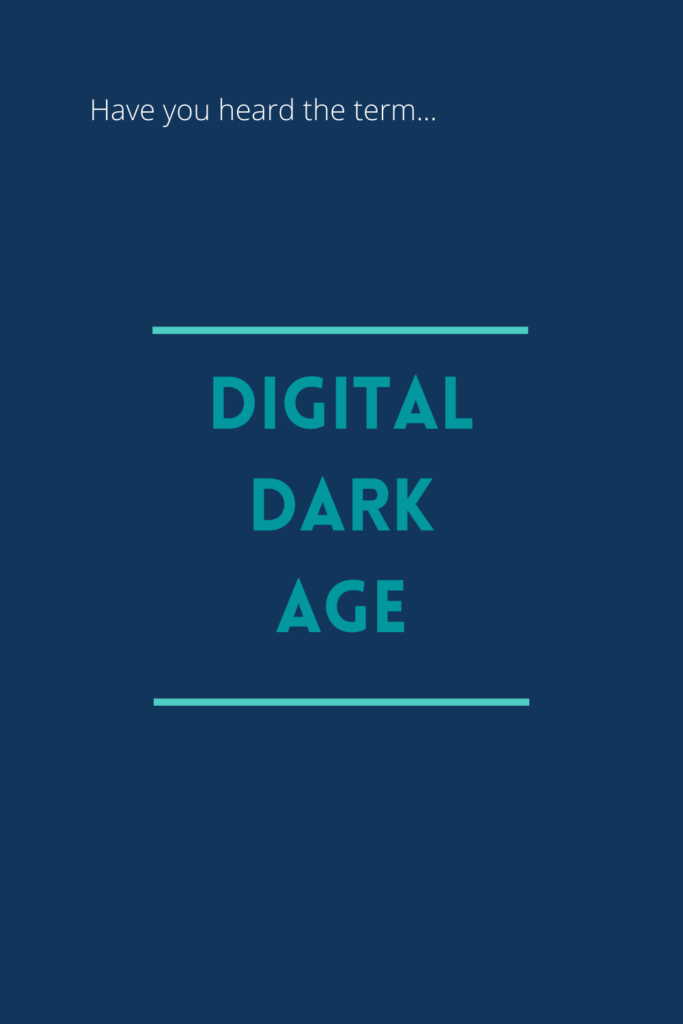We may be living in what will come to be known as the “Digital Dark Age” says Dr. Vint Cerf, VP of Google and a founding father of the internet. At the recent annual meeting of the American Association for the Advancement of Science he remarked that historians of the future may be unable to learn about our lives due to the way we store information and how quickly it changes.
Interesting isn’t it? OUR lives. I find it fascinating that we, who are drowning in information, could very well be the dark age of the future.
Think of the changes we have seen in just the last 20 years. Here are just a few examples:
- Data stored on floppy disks is no longer accessible by most people – we don’t have the computers or drives to play them
- New computers don’t have DVD drives, it won’t be long until we can’t access information on DVDs
- Some new computers don’t have USB ports (um, now what?)
- VCRs went out of production years ago, no one is making the machines to play the tapes, never mind how fast the tapes themselves are deteriorating.
- It’s becoming difficult to find a music cassette player.
- New storage devices have short life spans – an external hard drive has an average life span of 5 years.
- Canon lost client’s photos stored on their servers due to a coding error this summer. They were found to be irretrievable. Poof! Gone!
There is a good chance we will be losing more data, personally, than we save. You can prevent this in two ways:
– Move your data forward – change your formats, change your storage devices, make a concerted effort to back up your files and change with the times. Be aware of how you are saving your items.
– Stick with the tried and true – printed photographs have a life span of 100 years or more – print your most important items and keep them safely stored. Barring a disaster like a fire or flood, a printed item is much safer than a digital item.

If you still have memories in any of these formats it’s time to move them forward:
- Tapes (VHS, camcorder),
- DVDs and CDs,
- Floppy disks and diskettes,
- Film,
- .avi format movies and other formats of images and movies that are difficult to see or play.
All of these can be converted to more current formats, but it won’t be long until we don’t have the equipment or software to access them anymore.
There are very interesting discussions in the data management field about protecting ourselves from becoming the Digital Dark Age. One idea is to store the instructions for the machines that read our data with the data so the machines could be re-assembled in the future. Many institutions are developing detailed plans for storing, backing up and future proofing their data. But, as historians point out, sometimes we don’t know what will be important in the future. We may be able to move the data forward but lose the key to unlocking the meaning. Its a very interesting topic and I’m looking forward to seeing how best practices in data asset management evolve.
Here is the Wikipedia definition: The digital dark age is a lack of historical information in the digital age as a direct result of outdated file formats, software, or hardware that becomes corrupt, scarce, or inaccessible as technologies evolve and data decay.[1] Future generations may find it difficult or impossible to retrieve electronic documents and multimedia, because they have been recorded in an obsolete and obscure file format, or on an obsolete physical medium, for example, floppy disks. The name derives from the term Dark Ages in the sense that there could be a relative lack of records in the digital age, as documents are transferred to digital formats and original copies are lost.